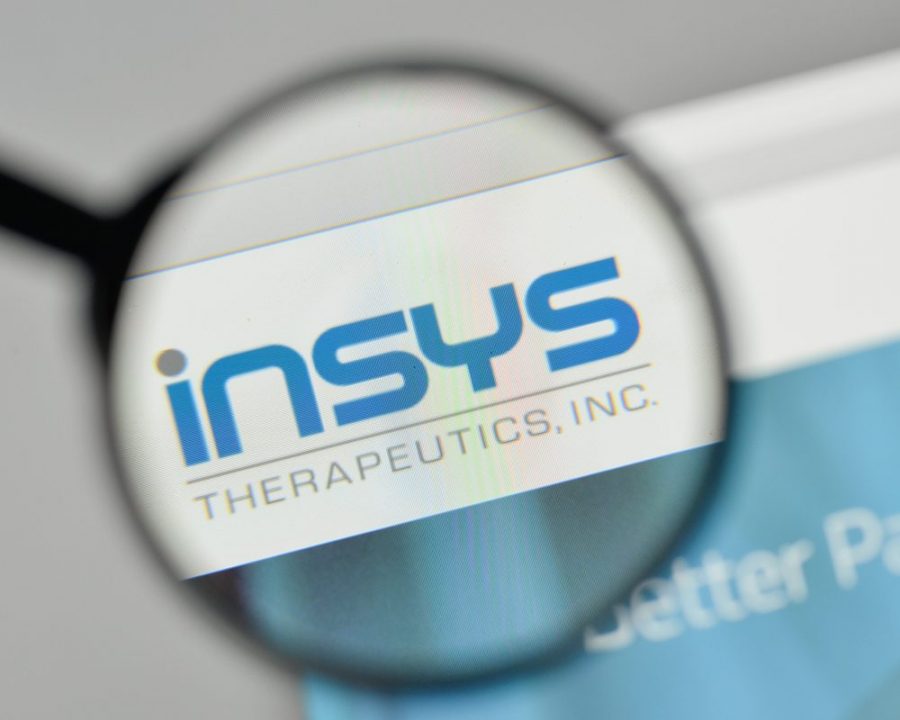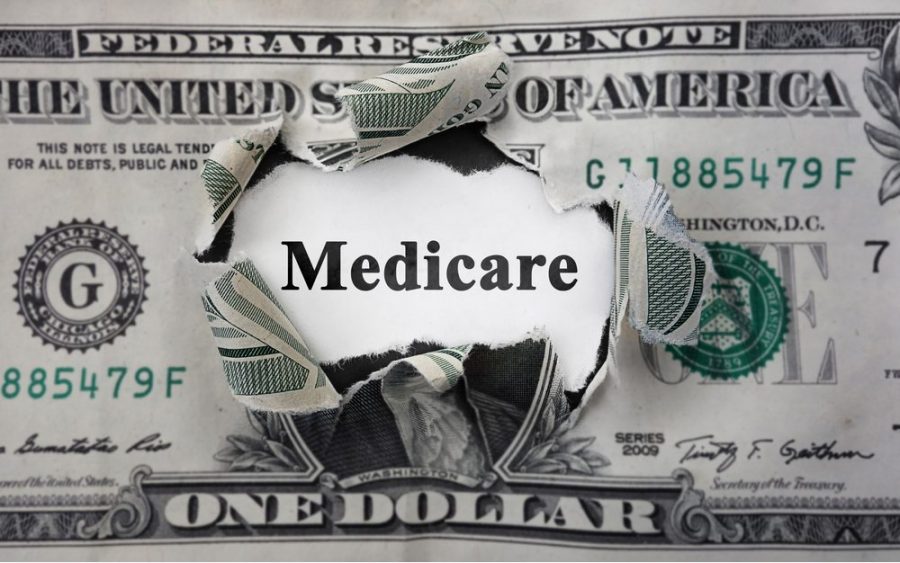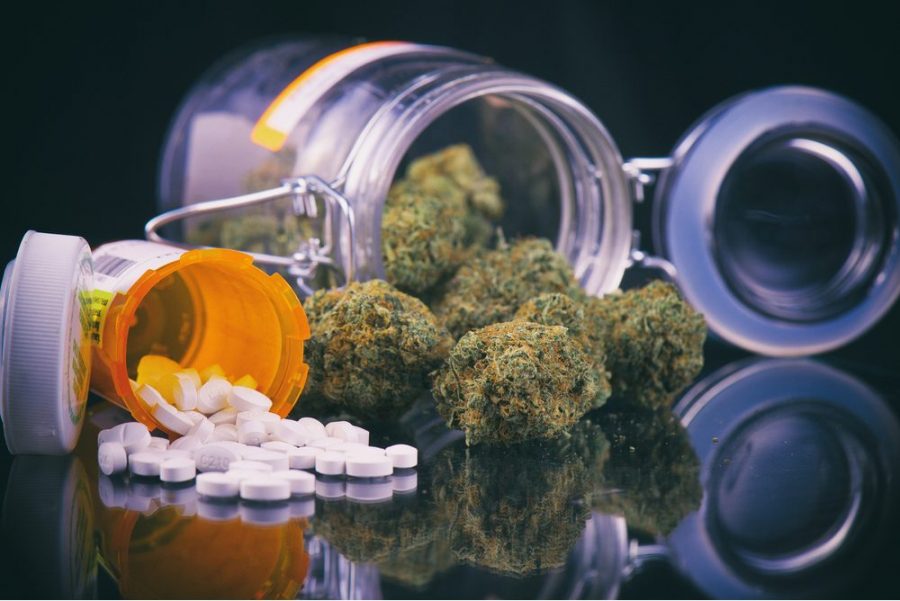Big Pharma is investing big money into trying to slow the progress of medical cannabis.
Illinois recently became the eleventh US state to legalize recreational cannabis. It’s an early pit stop for the federal legalization movement, which no longer seems far off. After all, New York, New Hampshire, Minnesota, Connecticut, and New Mexico are all looking to pass adult-use cannabis legalization in 2019.
But while support for cannabis legalization only seems to be becoming more mainstream, there is significant pushback coming from the pharmaceutical industry. And with cannabis’ therapeutic potential, is there any wonder why?
One Pharma Company On a Mission
“Big Pharma” has been trying to stem the support for legal cannabis ever since Colorado and Washington approved recreational consumption in 2012.
In 2016, Insys Therapeutics, a pharmaceutical company that produces prescription drugs containing the highly addictive fentanyl, made a $500,000 donation opposing Arizona’s bid for legalization. This donation made Insys Therapeutics the largest donor to the anti-legalization movement in Arizona.
In a statement by CEO John Kapoor at the time, Insys claimed the legalization proposition “fails to protect the safety of Arizona’s citizen, and particularly its children.” The company that makes fentanyl believes access to cannabis fails to protect Americans. Just think on that for a moment.

This stance was met with particular suspicion given Insys’s contribution to the national opioid crisis. And this suspicion is fair. In 2019, the company filed for bankruptcy protection due to its growing opioid-related lawsuits and investigations. Investigators accused Insys of pushing its highly addictive synthetic opioids on doctors via bribes. Investigators found Insys encouraging physicians to prescribe fentanyl-based Subsys outside of its designed use.
So, far from acting on moral integrity, critics accused Insys of donating to protect their market share in opioid sales. To make the conflict of interest even more clear, in 2017 Insys was granted approval from the Drug Enforcement Agency (DEA) for their drug Syndros, a synthetic THC cannabinoid.
Pharma Money In Politics
But Insys is no lone wolf. Purdue Pharma and Abbot Laboratories are reportedly some of the largest donors to the Anti-Drug Coalition of America. The companies are responsible for the highly addictive painkillers OxyContin and Vicodin, respectively. The pharmaceutical industry was the top lobbying industry spender of 2018, with roughly $280 million spent buying influence. And the Pharmaceutical Research and Manufacturers of America, one of the staunchest opponents of cannabis legalization, spent $28 million in 2018, surpassing its lobbying record.
Politicians have even spoken out against cannabis opposition from the pharmaceutical industry. In 2019 U.S. Senator Kirsten Gillibrand said the following in reference to pharmaceutical companies, “To them it’s competition from chronic pain, and that’s outrageous because we don’t have the crisis in people who take marijuana from chronic pain having overdose issues.”
Why Is Big Pharma So Afraid Of Cannabis Legalization?
According to research, they have a right to be frightened. Studies show that in states where medical cannabis is legalized, opioid overdoses drop by roughly 25 percent compared to prohibition states. The study suggests that patients may be replacing their prescription opioid medication with medicinal cannabis, decreasing their dependence and risk of overdose.
Further Medicare research also tells us that when cannabis can serve as a clinical alternative for a prescription drug (e.g., anti-anxiety, chronic pain), those prescription drug sales fell significantly when medical cannabis was legalized. Medical cannabis was estimated to have saved Medicare $165.2 million dollars in 2013 by significantly affecting prescribing and spending patterns. This would potentially save $470 million dollars if cannabis was legalized in all 50 states.

But opioid profits aren’t the only game that the pharmaceutical industry is trying to protect. Synthetic cannabinoids offer significant potential for pharmaceutical companies. Nabilone is a synthetic THC pharmaceutical that has combated vomiting and nausea since 1981. And Big Pharma is also branching into CBD products, with Insys producing clinical studies on oral CBD solutions for pediatric epilepsy treatment.
How Cannabis Could Replace Pharmaceuticals
Legalizing cannabis offers many therapeutic benefits that could render certain pharmaceutical drugs unnecessary. Cannabis may one day replace pharmaceutical treatments for the following conditions.
Insomnia
Pharmaceutical drugs: Ambien, Halcion, Lunesta
Cannabinoids such as CBD and THC offer potential as a sleep aid and insomnia treatment. Cannabinoids interact with the endocannabinoid system, a series of receptors responsible for regulating homeostasis, appetite, sleep, mood, and pain perception. Studies have shown that cannabinoids can induce sleep promotion and shows potential as a tool for modulating sleep.
Chronic Pain
Pharmaceutical drugs: Codeine, Fentanyl, Oxycodone, Diazepam
Animal studies have shown that cannabis products significantly reduce chronic inflammation and neuropathic pain by targeting specific glycine receptors.
Neurodegenerative Disease
Pharmaceutical drugs: Donepezil, Rivastigmine, Razadyne
A 2018 World Health Organization report showed CBD’s potential efficacy as a treatment to relieve the symptoms of neurodegenerative diseases like Alzheimer’s, Parkinson’s, and Multiple Sclerosis. One animal study showed that the neuroprotective, anti-oxidative, and anti-inflammatory properties of CBD is able to reverse some cognitive deficits.
 r with
r with
Seizures
Pharmaceutical drugs: Phenobarbital, Dilantin, Oxtellar
A 2016 study showed that CBD might potentially manage seizures, due to the high level of cannabinoid receptors in the nervous system, and the anti-inflammatory and neuroprotective properties of CBD.
Mental Health Disorders
Pharmaceutical drugs: Diazepam, Lorazepam Prazosin
Studies have shown that cannabinoid extracts can be useful in managing a range of mental health disorders, including anxiety, OCD, and post-traumatic stress disorder. CBD may enhance the transmission of the 5-HT1a serotonin receptor. This increases the availability of serotonin, which may reduce anxiety and improve general mood.
Wall Street investment bank, Jefferies, released a report stating that by 2029, the medical cannabis industry alone will be worth $19 billion! With so much at stake, it’s no wonder the pharmaceutical industry is fighting to have sole control over cannabis production.





